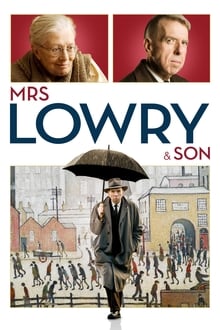
An intimate portrayal of the relationship between one of greatest artists of the 20th century, L.S. Lowry and his unhappy and controlling mother, Elizabeth, whom he lived with all his life.
You May Also Like
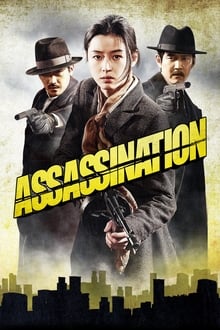
Assassination is set in Korea and Shanghai in the 1930’s during the Japanese occupation. The government resistance assigns a secret commando group with killing collaborators.
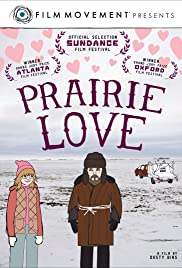
As a mysterious high plains drifter travels across the wintry North Dakota prairie, he finds a man lying unconscious in the middle of the road and stops to lend a hand. After defrosting, the man explains that he’s on his way to meet his pen-pal girlfriend for the first time, as she’s being released from prison. Desperate for a girlfriend of his own, the drifter sees this as an opportunity to change his lonely existence, and hatches a plan to steal his new companion’s identity, forever changing the destinies of all three people.

Hitler no longer believes in himself, and can barely see himself as an equal to even his sheep dog. But to seize the helm of the war he would have to create one of his famous fiery speeches to mobilize the masses. Goebbels therefore brings a Jewish acting teacher Grünbaum and his family from the camps in order to train the leader in rhetoric. Grünbaum is torn, but starts Hitler in his therapy …
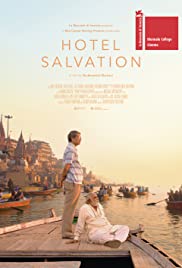
An ominous dream convinces 77-year-old Dayanand Kumar that his end could be near. He takes the news to his son Rajiv, knowing he wants to breathe his last in the holy city of Varanasi and end the cycle of rebirth, by attaining salvation. Being the dutiful son he is, Rajiv is left with no choice but to drop everything and make the journey with his stubborn father. Daya and Rajiv check into Mukti Bhawan (Hotel Salvation) in Varanasi, a guesthouse devoted to people who want to die there. But as the days go by, Rajiv struggles to juggle his responsibilities back home, while Daya starts to bloom in the hotel. Rajiv gives his father a shot at salvation but as family bonds are tested, he finds himself torn, and not knowing what he must do to keep his life together.

Landscape architect Evie has met her match with her new client, stubborn archaeologist Ryan, but his daughters love Evie, and she soon finds herself the unwitting victim of “Operation Grow a Girlfriend.”

Paris, France. Fred and his colleagues, members of the BPM, the Police Child Protection Unit, dedicated to pursuing all sorts of offenses committed against the weakest, must endure the scrutiny of Melissa, a photographer commissioned to graphically document the daily routine of the team.
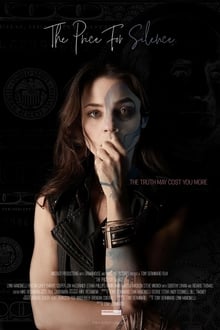
After the death of her father, a troubled woman returns home to confront the family who paid for her silence. Kira Flynn grew up in a storybook NJ setting. As a teen, she was a gifted artist with a bright future ahead of her, until one fateful night changed everything; a child’s innocence, a father’s loyalty, and a family’s future. Fifteen years later, Kira’s father passes away. She returns home to her mother, Sheila, and her brother, Lucas, to help bury her father while she digs up her past.

A thirty-year old woman, wanting a child, decides to apply for a husband through a marriage agency. She finds one in Andrei, a boastful and patriarchal veteran of the Afghan war. They struggle financially, and after meeting up with an old war buddy, Andrei disappears. Galina is bereft, pregnant, lost. What will become of her as the country is torn apart by civil war?
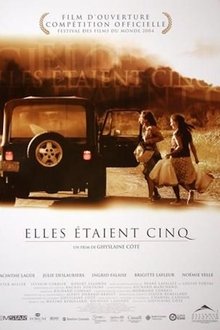
In Montreal, the teenagers Manon, Anne, Isa, Claudie and Sophie are friends since their childhood. While spending a couple of days in the cottage of Sophie’s parents nearby a lake, the girls decide to give a party, and Manon and Sophie hitch for a ride to the town in a jeep to buy some beers and supplies and they invite the driver to the party. On the return, the same driver stops the car and later Sophie is found stabbed, raped and covered of blood. Fifteen years later, Manon sees the guy in a car-wash and she invites her former friends to return to the house nearby the lake, where wounds of their traumatic loss are disclosed.

In 1981, chalk slogans written in uppercase letters started appearing in public spaces in the Romanian city of Botoşani. They demanded freedom, alluded to the democratic developments taking place in Romania’s socialist sister countries or simply called for improvements in the food supply. Mugur Călinescu was behind them, who was still at school at the time and whose case is documented in the files of the Romanian secret police. Theatre director Gianina Cărbunariu created a documentary play based on this material.